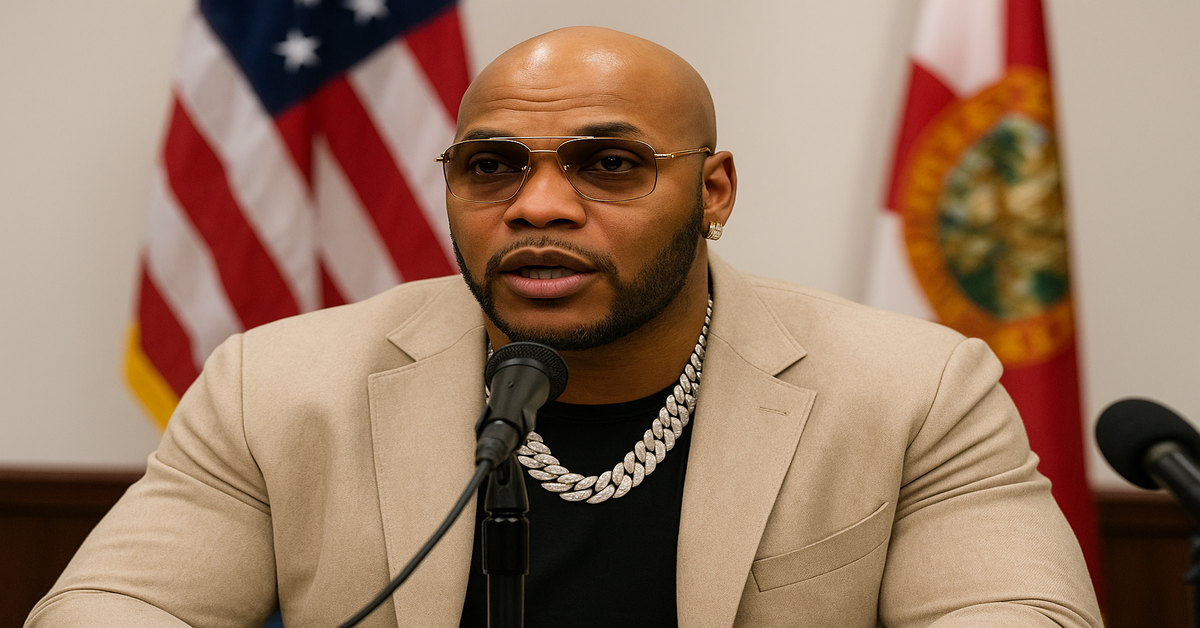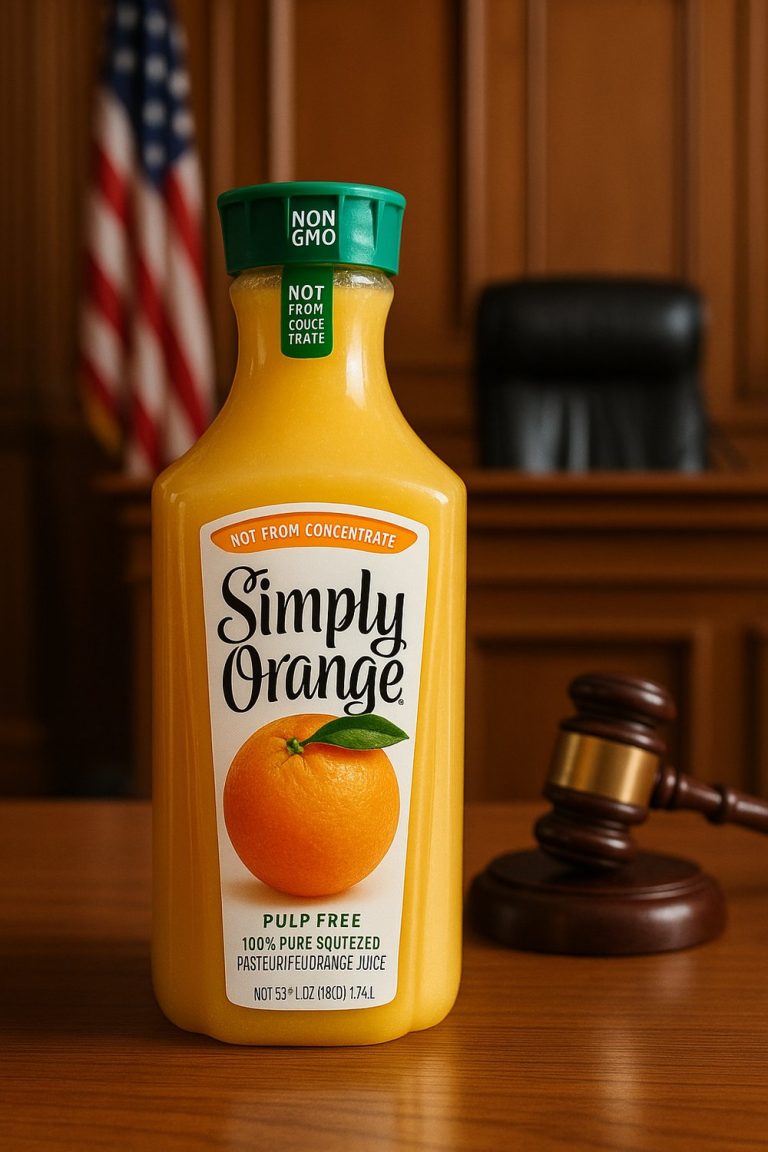The Flo Rida lawsuit could be considered a watershed moment for artist-brand alliances. The dispute between rapper Flo Rida and energy drink company Celsius Holdings was transformative in a way that changed our understanding of fairness and transparency in endorsement agreements. Flo Rida — the performer of the songs “Low” and “Right Round” — sued Celsius for breach of the 2014 endorsement agreement, claiming that Celsius deprived him of millions of dollars in bonuses and stock grants. Flo Rida ultimately prevailed in a public trial in 2023, receiving a jury award of $82.6 million with a subsequent appeals court decision questioning the size of the award, but affirming liability.
This article will describe the circumstances that gave rise to the Flo Rida lawsuit, the claims the court considered, and the court’s rulings. You will learn how the case changed the music industry and the expectations of corporate behavior. The takeaways from the Flo Rida lawsuit provide vital lessons for artists, brands, and attorneys who work with them in more controversial partnerships today.
What Triggered the Flo Rida Lawsuit?
The dispute originated from an endorsement arrangement in 2014, which secured Celsius Holdings a multi-year brand ambassador relationship with Flo Rida. At that time, Celsius was still a unique brand in the saturated and competitive energy drink space. Flo Rida, through his performances, music videos, and social media, served as a global brand ambassador, assigned to promote this product.
The arrangement compensated Flo Rida in cash, stock options, and bonuses based on Celsius’ sales performance. Coupled with Flo Rida’s influence, Celsius gained traction and market access. As Celsius’ revenues grew in the following years, tension began to develop. Flo Rida alleged that Celsius intentionally cheated him out of parts of his compensation. He argued that Celsius falsified financial documents and failed to deliver on promised restricted stock shares and bonuses.
At the beginning of the COVID-19 pandemic, Flo Rida filed the Flo Rida lawsuit against Celsius in 2021 in Broward County Circuit Court. Before long, the litigation attracted national attention and raised larger issues of corporate accountability in artist partnerships.
Why Did Flo Rida File the Lawsuit?
Flo Rida filed the lawsuit on the basis that Celsius did not comply with clear terms in the agreement. His legal team argued the brand was successful mainly due to Flo Rida’s promotional efforts. However, it is alleged that Celsius broke their promises when the value of the brand increased exponentially.
Flo Rida’s lawyers identified specific breaches:
Celsius did not pay sales-based bonuses that they had contractually promised.
The company failed to transfer stock options granted to Flo Rida.
Celsius withheld key financial disclosures needed to verify his compensation.
The lawsuit claimed this conduct not only breached the agreement but also violated principles of good faith and fair dealing. Flo Rida sought to enforce the contract, obtain full payment, and ensure corporate accountability. The case quickly became about more than just money. It symbolized an artist’s fight for fair treatment in a powerful corporate landscape.
What Legal Claims Did the Flo Rida Lawsuit Involve?
Breach of Contract
At the heart of the Flo Rida lawsuit stood a breach of contract claim. Flo Rida alleged that Celsius failed to meet its core contractual obligations. The company was unable to pay the agreed-upon bonuses or transfer the promised stock options as planned. The lawsuit argued that these failures constituted apparent breaches of the endorsement agreement signed by both parties.
Breach of Good Faith and Fair Dealing
This lawsuit also included a count for breach of the covenant of good faith and fair dealing. Flo Rida’s legal team contended that Celsius acted in bad faith in its ignorant pleading. It is alleged that Celsius falsified and manipulated figures in its financial and other disclosures, while also withholding material disclosures promptly to avoid liability for monetary compensation. This claim exemplifies the significance of ethical behavior in the relationship between a brand and an artist.
Unjust Enrichment
Another key claim in the Flo Rida lawsuit was unjust enrichment. Flo Rida argued that Celsius reaped immense benefits from his endorsement work. The brand used his image and influence to fuel sales growth. However, by withholding rightful payments, Celsius unfairly enriched itself at the artist’s expense.
Demand for Full Accounting
Finally, the lawsuit demanded a full accounting of Celsius’ financial records. Flo Rida sought transparency to verify how much he was owed. The demand emphasized the role of accurate reporting in high-stakes commercial agreements.
How Did Celsius Respond to the Flo Rida Lawsuit?
Celsius Holdings denied all wrongdoing in the Flo Rida lawsuit. The company argued that it honored all contractual obligations. Celsius claimed that specific bonuses and stock options were contingent on performance benchmarks that Flo Rida allegedly failed to meet.
Celsius also disputed the interpretation of key contract terms. The firm asserted that its accounting was transparent and accurate. Throughout the trial, Celsius positioned the case as an attempt to extract more funds from the company’s success. The defense presented the disagreement as a misreading of the contract rather than a willful violation. Even with these arguments, the court eventually found for Flo Rida on fundamental questions of liability.
What Was the Result of the Flo Rida Lawsuit?
Flo Rida’s case was tried in January 2023. The courtroom hearing sparked a media frenzy because both sides relied on evidence and testimony from witnesses. The jury returned after deliberating for a couple of days.
Flo Rida was given $82.6 million in damages for unpaid bonuses, stock options, and compensation related to these. The jury held that Celsius had violated the contract and acted in bad faith. It was a significant judgment in support of Flo Rida and reaffirmed the notion that contracts matter in the artist-brand dynamic.
However, this would eventually be taken up by the appeals court. The court upheld the finding that Celsius was liable. But it challenged the precise amount of the $82.6 million award. As of mid-2025, the appeals process regarding the final compensation figure remains ongoing.
How Did the Flo Rida Lawsuit Affect the Music Industry?
The Flo Rida lawsuit sent ripples through the music and branding industries. Many artists saw the case as validation of their rights in endorsement deals. It reinforced the idea that artists can and should hold companies accountable for their contractual promises.
Brand executives also took notice. The lawsuit underscored the importance of clear, transparent contracts and ethical business practices. Companies realized that legal risks increase when they exploit artist relationships. Music industry lawyers now advise clients to secure stronger contract protections. Artists demand greater transparency in financial reporting and compensation tracking. The case also raised awareness about the risks artists face when partnering with corporate entities. It underscored the importance of having experienced legal counsel in negotiations and disputes.
How Did the Flo Rida Lawsuit Impact His Career?
The Flo Rida lawsuit influenced the rapper’s career in several important ways.
Reputation Boost
Winning the lawsuit enhanced Flo Rida’s reputation as a principled and business-savvy artist. He demonstrated a willingness to stand up for his rights. Many fans and fellow artists admired his determination and courage.
Financial Impact
The court’s award, despite the ongoing appeal, positioned Flo Rida for significant financial gain. Even a revised payout would provide resources for future music projects, investments, and charitable work.
Industry Influence
The case elevated Flo Rida’s standing in entertainment circles. He emerged as an advocate for fair treatment of artists. His victory inspired other artists to scrutinize their own brand deals and demand transparency.
Broader Impact
Beyond his gains, the lawsuit reshaped conversations about artist rights. Flo Rida’s fight highlighted systemic issues in corporate partnerships. The case empowered more artists to assert their rights and demand ethical treatment from brands.
What Lessons Should Artists Learn from the Flo Rida Lawsuit?
The Flo Rida lawsuit provides valuable lessons for artists navigating endorsement and collaboration deals.
1. Understand Every Contract Term
Artists must thoroughly understand the terms of every agreement they sign. Ambiguities in contract language can lead to disputes. Legal counsel should review all provisions carefully.
2. Demand Transparency
Contracts should require complete financial transparency. Artists should have mechanisms in place to verify sales data and determine bonus eligibility. Lack of transparency breeds mistrust and legal risk.
3. Document Contributions
Artists should document their promotional efforts in detail. This documentation strengthens their position in the event of a dispute. It provides clear evidence of the value they deliver to brands.
4. Advocate for Fair Treatment
Artists should not hesitate to advocate for their rights. The Flo Rida lawsuit shows that standing up for fairness can lead to meaningful victories, even against large corporations.
5. Build a Strong Legal Team
Experienced legal counsel is essential in complex commercial disputes. A skilled legal team can help artists navigate litigation and effectively protect their interests.
What Lessons Should Brands Learn from the Flo Rida Lawsuit?
The Flo Rida lawsuit also offers critical lessons for companies engaging artists.
1. Honor Contractual Commitments
Brands must honor the full terms of endorsement agreements. Failure to do so exposes companies to legal liability and reputational damage.
2. Promote Transparency
Transparent financial reporting builds trust with artist partners. Brands should ensure that compensation calculations are transparent and verifiable.
3. Conduct Ethical Business
Companies should prioritize ethical conduct in artist relationships. Manipulative tactics or bad-faith behavior can lead to costly legal battles.
4. Monitor Contract Performance
Brands should implement systems to actively monitor contract performance. This helps ensure that obligations are met and disputes are avoided.
5. Protect Reputation
Legal disputes with artists can harm brand reputation. Companies should strive to resolve conflicts amicably and maintain a positive public image.
Conclusion
The Flo Rida case is a milestone litigation in artist-brand partnerships. It demonstrated the importance of upholding contracts, maintaining open relationships, and engaging in ethical business practices. Flo Rida’s court win emboldened artists to stand up for their rights. It also compelled brands to rethink how they handle artist collaborations.
As the appeals process unfolds, the broader implications of the case have already become apparent. Artists are now taking endorsement opportunities with more caution and legal representation. Brands realize that accountability and trust are as important as ever. The Flo Rida case will be remembered as one that changed industry standards and paved the way for a new generation of fairness between artists and brands.
FAQs
What was the Flo Rida lawsuit about?
The Flo Rida lawsuit involved claims that Celsius Holdings breached an endorsement deal by withholding bonuses and stock options.
How much did Flo Rida win?
A jury awarded Flo Rida $82.6 million. However, an appeals court is reviewing the final amount.
Did Celsius admit wrongdoing?
No. Celsius denied wrongdoing but was found liable for breaching the agreement.
What lessons can artists learn?
Artists should demand transparency, document contributions, and advocate for their rights in brand deals.
How did the lawsuit impact the industry?
The case raised awareness about corporate accountability and inspired stronger protections for artists in endorsement agreements.




